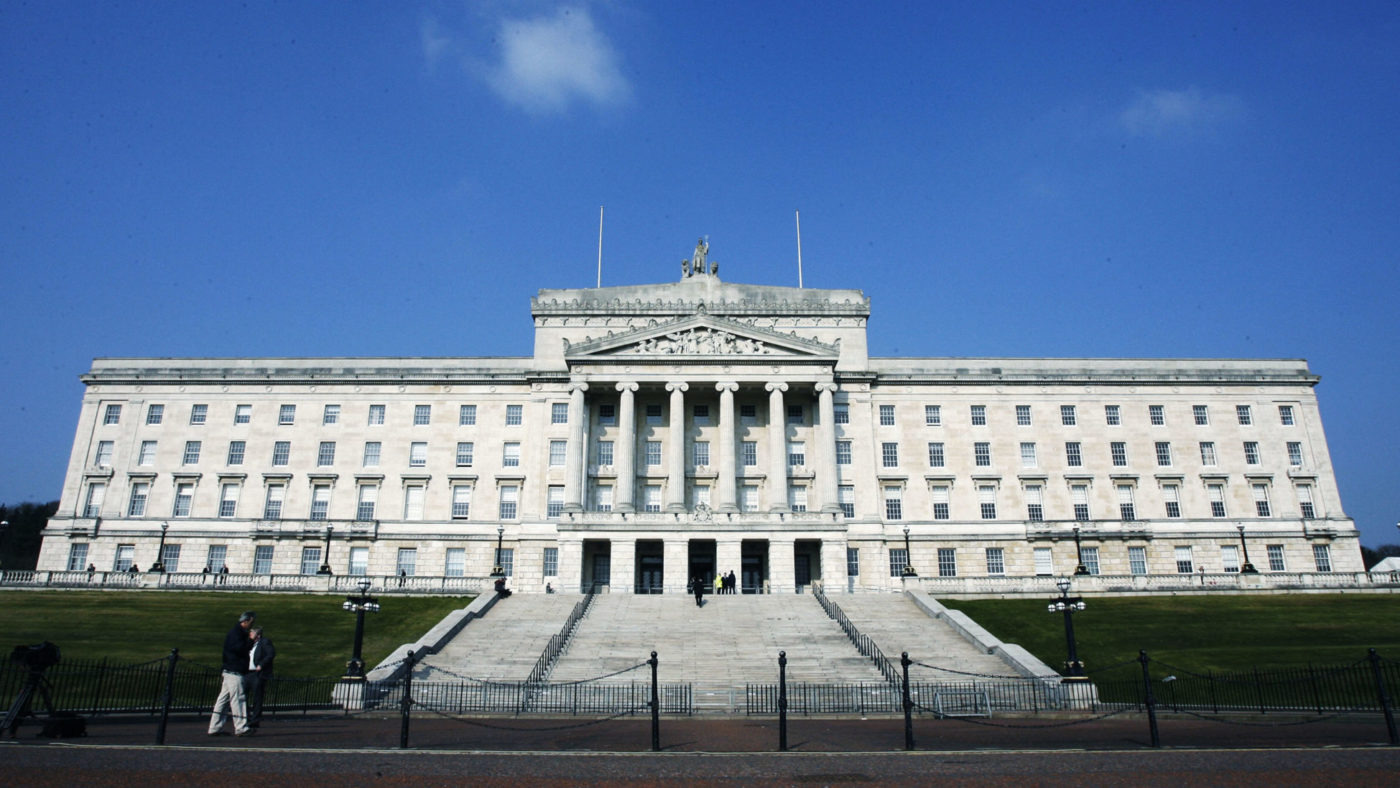Yesterday, the Government published proposals intended to reassure unionists and Brexiteers that Theresa May’s Withdrawal Agreement will not undermine Northern Ireland’s place in the UK. If a solution to the Irish border problem cannot be found during the implementation period, they commit the Government to a “mandatory process of consultation” with the Stormont Assembly, before the infamous backstop can be enforced.
Of course, the devolved institutions in Northern Ireland have not sat for over two years, partly because of bitter divisions between the two largest parties over Brexit, so the prospects of this consultation ever taking place are vanishingly slim. Sinn Fein has already rejected the Government’s document, claiming that it offers unionists a ”veto on progress”, while the DUP, whose fears it is intended to allay, dismissed the contents as “fairly meaningless”.
These “commitments to Northern Ireland and its integral place in the United Kingdom”, extend Theresa May’s argument that neither the EU nor the UK intends the backstop to be used and, even if it is needed, that it won’t become a permanent arrangement. They try to address concerns that Northern Ireland will be allowed to drift further and further from the economy in the rest of the UK, but many of the existing problems with the Withdrawal Agreement are ignored.
Contrary to some media reports, the mooted consultative role for Stormont does not comprise a veto on implementing the backstop and it is not clear what would happen if power-sharing is not restored before the end of 2020. The exact manner of the consultation is a “matter for the Assembly and its internal procedures”, while the document says “we will consult the parties in Northern Ireland on the details of these proposals and how best to provide for them in law.”
This opens up the possibility that the Government’s plans could actually become a new source of friction, ahead of talks in Belfast aimed at getting power-sharing restarted.
The document’s most significant content arguably deals with “protecting Northern Ireland’s integral place in …. the UK internal market.” In particular, a promise is made that there “would be no divergence in the rules applied in Great Britain and Northern Ireland in areas covered by the protocol.” This provision echoes the prime minister’s Chequers proposals that effectively committed the UK to match swathes of EU regulation, in order to prevent new infrastructure at the border in Ireland.
The Government also says it will seek the Stormont Assembly’s assent before agreeing that any new EU laws will apply to Northern Ireland, under the backstop. Existing single market regulations can still be amended or updated and the provision provides no protection against the deluge of judicial interpretations that make Brussels’ rulebook so restrictive and unwieldy.
The document emphasises Northern Irish companies’ unhampered access to the market in Great Britain, but it doesn’t mention the main threat the Withdrawal Agreement poses to the economic integrity of the UK. None of the commitments is designed to ensure that businesses from the mainland encounter no new barriers selling goods into Northern Ireland. The Government’s own legal advice made it clear that the province will be outside the UK customs territory under the Withdrawal Agreement backstop and firms from the rest of Britain will need to fill in customs declarations for products destined for Ulster.
There is a multitude of other practical difficulties with this paper. The Withdrawal Agreement will be a binding international treaty while the Government can only offer assurances framed in domestic law, that can be repealed or amended by future administrations in parliament. The document effectively formalises the idea that Northern Ireland is a powerful bargaining chip in the forthcoming negotiations.
Perhaps most critically, the Government’s argument — and the paper is primarily an argument for the Withdrawal Agreement, much more than a practical proposal to ameliorate its effects — tries falsely to separate the economic and political ties that bind together the nations of our Union. In fact, these aspects of the United Kingdom are inseparable.
None of Theresa May’s commitments will prevent Northern Ireland’s economy from being separated off, under the existing terms of the backstop. They might provide some comfort that things won’t get worse in the future, but even these pledges are too light in substance to convince unionists that their fears about the Withdrawal Agreement are ill-founded.
If the backstop comes into effect, its provisions are already serious enough to damage the Union profoundly. The worst aspects of the deal already look like a derogation of the UK’s vow in paragraph 50 of the Joint Report from December 2017, to “ensure no new regulatory barriers develop between Northern Ireland and the rest of the United Kingdom, unless, consistent, with the 1998 Agreement, the Northern Ireland Executive and Assembly agree that distinct arrangements are appropriate.”
Effectively, Theresa May is still asking unionists, in Ulster and elsewhere, to accept that the deal she plans to sign into law will never be used, on the strength of a series of flimsy promises and statements of good intentions.


